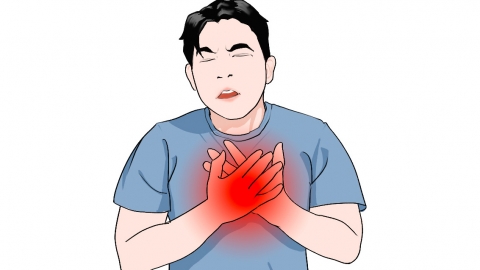What are the physiological causes of chest tightness and shortness of breath?
Generally, the physiological causes of chest tightness and shortness of breath mainly include overeating, strenuous exercise, emotional stress, high altitude, and pregnancy. If discomfort occurs, it is recommended to seek timely medical treatment at a formal hospital. Detailed explanations are as follows:
1. Overeating
When overeating occurs, the stomach expands due to holding a large amount of food. Because gas exchange in the lungs is restricted, oxygen supply becomes relatively insufficient, making it easy to experience symptoms of chest tightness and shortness of breath.
2. Strenuous Exercise
During strenuous exercise, muscle activity significantly increases, and the body's demand for oxygen rises sharply. To meet this high demand, the respiratory system increases breathing frequency and depth in an attempt to inhale more oxygen. At the beginning of intense exercise, the body may not immediately adapt to this high metabolic demand, causing oxygen supply to temporarily lag behind consumption, resulting in a state of relative hypoxia.

3. Emotional Stress
When a person is under emotional stress, the sympathetic nervous system is activated. Sympathetic nerve excitement triggers a series of physiological reactions, one of which is increased and deeper breathing. Although this change in breathing pattern aims to increase oxygen intake to some extent, excessive rapid breathing can disrupt the breathing rhythm, leading to rapid and shallow breathing.
4. High Altitude
As altitude increases, atmospheric pressure gradually decreases, the air becomes thinner, and the oxygen content per unit volume also decreases. When the body is at high altitude, the oxygen content in the inhaled air is lower than that at sea level, resulting in reduced oxygen intake by the lungs. To obtain sufficient oxygen, the body attempts to increase oxygen intake by increasing breathing frequency and depth, but this compensatory mechanism often cannot fully make up for the oxygen supply deficiency.
5. Pregnancy
During pregnancy, as the fetus grows and develops, the uterus gradually enlarges. The enlarged uterus exerts pressure on surrounding organs, including the diaphragm. When the diaphragm is compressed and moves upward, the chest cavity space decreases, limiting the lungs' ability to expand. This causes the lungs to be unable to fully expand during breathing, reducing the amount of inhaled air, thereby affecting gas exchange and leading to relatively insufficient oxygen supply.
All of the above are physiological causes. Normally, no treatment is required, but if accompanied by other discomfort symptoms, timely medical attention is necessary.




